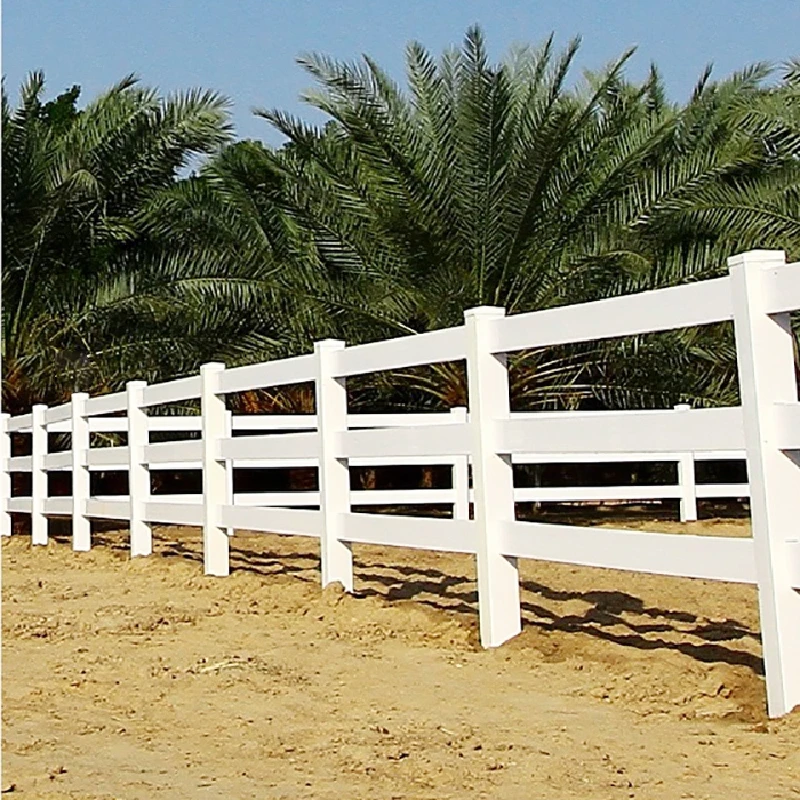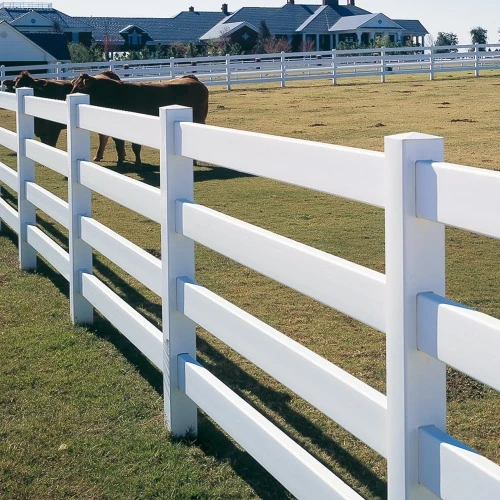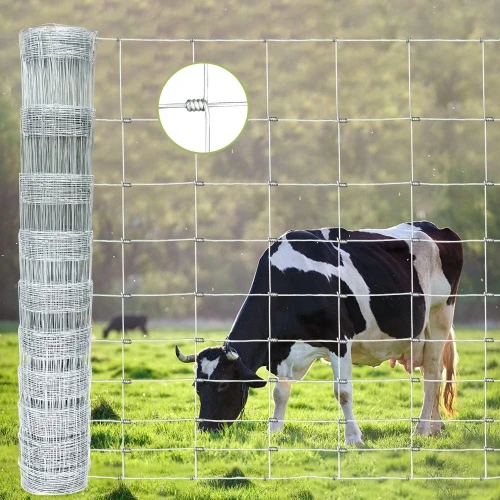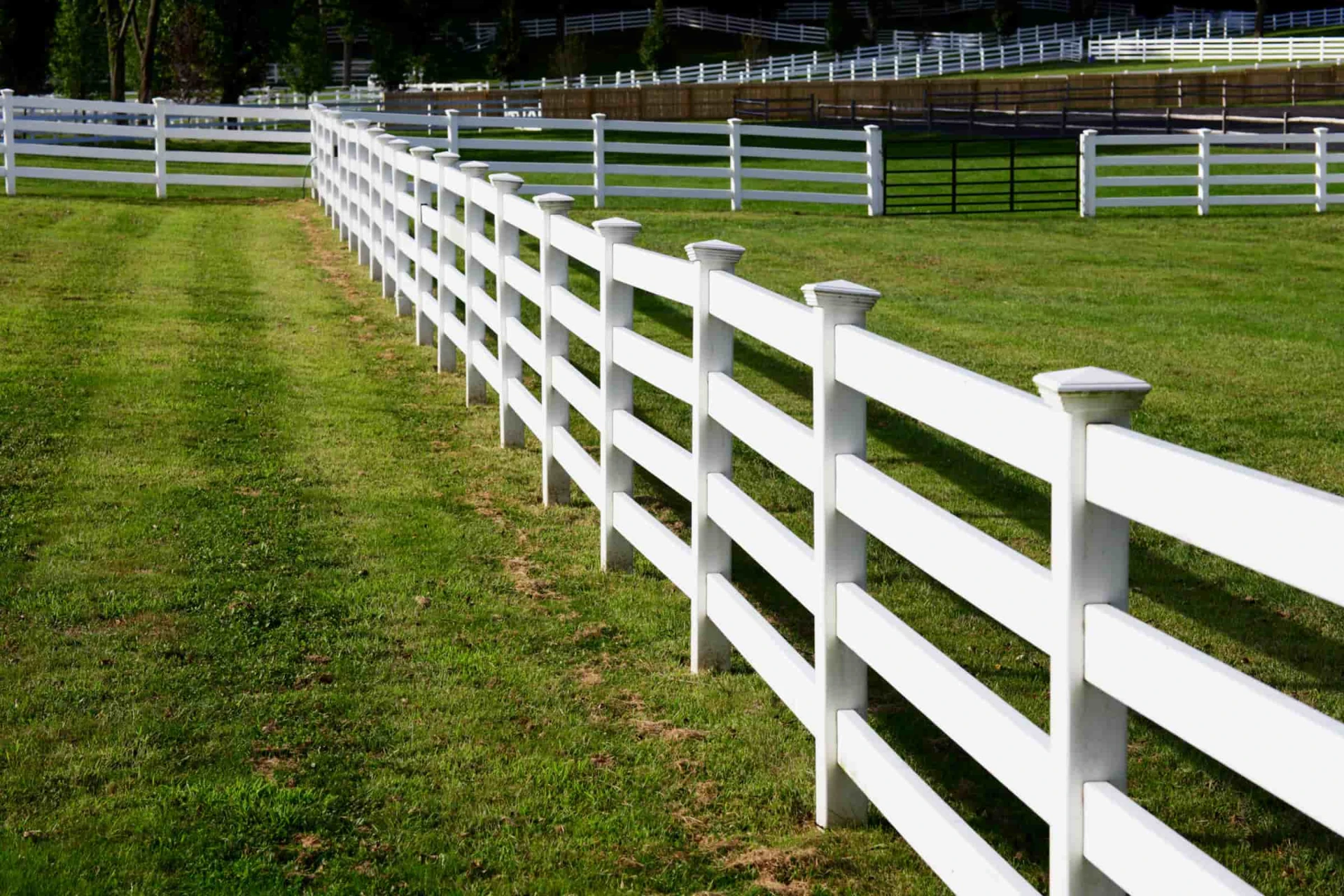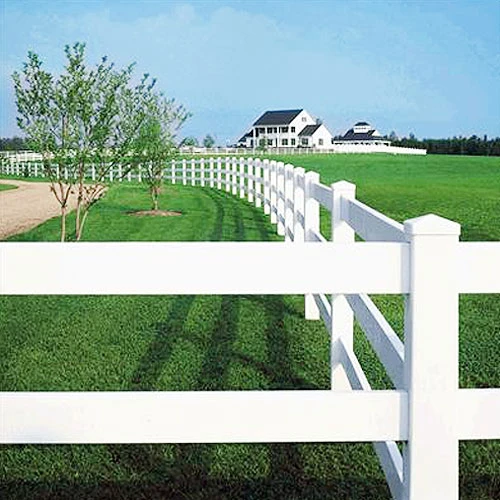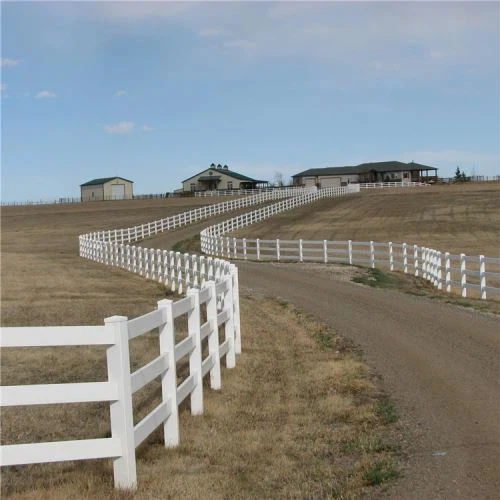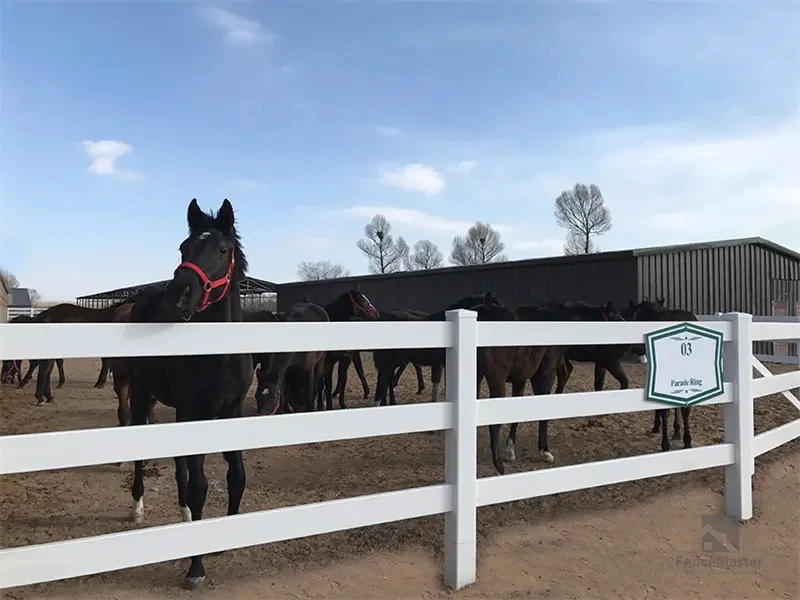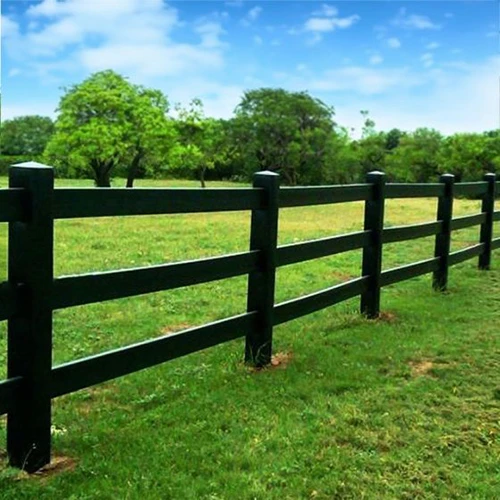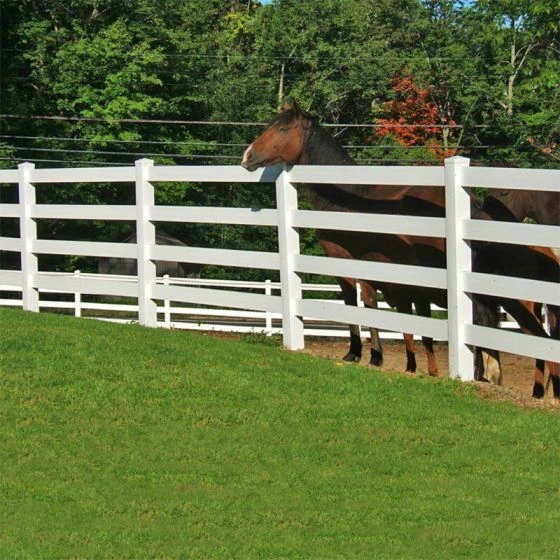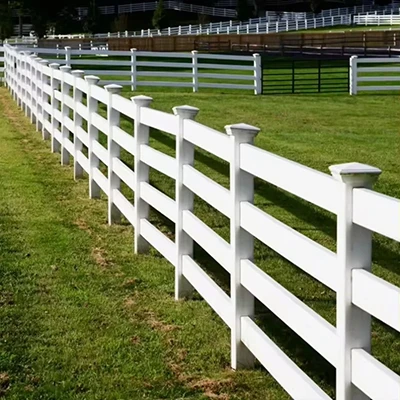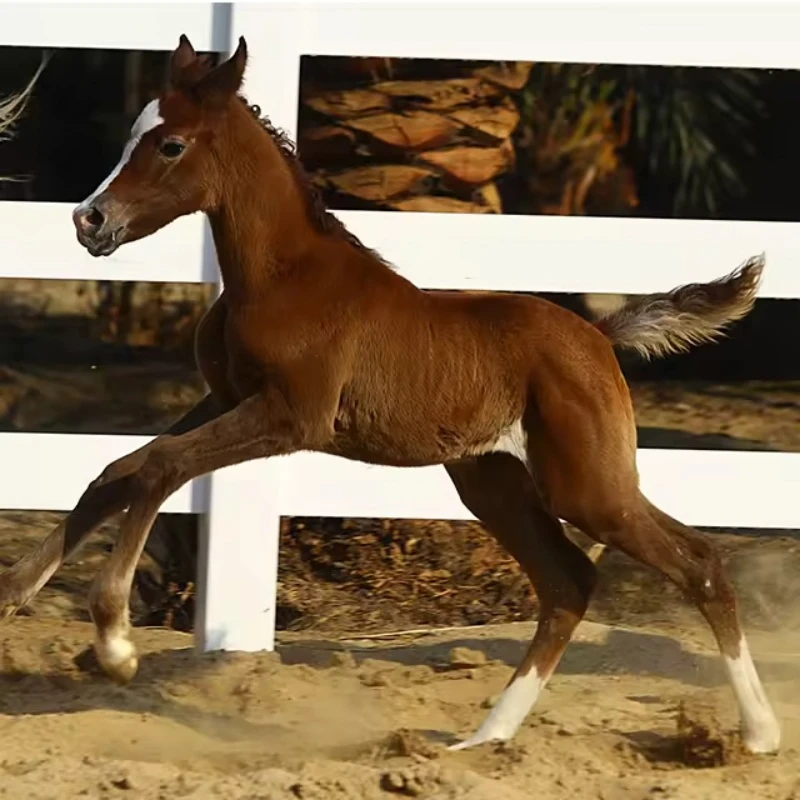Our PVC horse fencing is specifically designed for equestrian facilities, stables, ranches, and training grounds. Made from durable, UV-resistant vinyl, these fences provide a safe, low-maintenance, and visually appealing solution for horse containment. Unlike traditional wooden fences, PVC fences do not splinter, rot, or require painting, making them ideal for long-term use in outdoor environments.
We offer various configurations including 2-rail, 3-rail, and 4-rail systems to meet different containment needs, with optional internal steel reinforcements for added strength. All models are engineered for easy installation and compliance with equine safety standards.
Horse fences come in a variety of types designed to meet different needs, environments, and budgets. Common options include wooden fences, vinyl fences, wire fences, and electric fences. Wooden fences are traditional and valued for their natural appearance and strength; they are usually made from treated wood such as pine or cedar, offering durability but requiring regular maintenance like painting or sealing to prevent rot and damage. Vinyl fences have gained popularity because they are low maintenance, weather-resistant, and mimic the look of wood without splintering or needing painting, making them safer and easier to clean. Wire fences, including woven wire and high-tensile wire, are cost-effective and practical for containing horses; woven wire is designed to prevent horses from getting hooves caught but may need visibility markers to avoid injury, while high-tensile wire is strong but usually paired with visibility tape. Electric fences offer flexibility, often used for temporary containment or rotational grazing, delivering a mild shock to deter horses from leaning or pushing against the fence; these require an energizer, grounding system, and regular checks to ensure proper function. The choice depends on property size, horse behavior, climate, budget, and aesthetic preferences. Sometimes, combining fence types, such as wooden posts with electric strands, can enhance safety and utility.
Custom Rail Options for Diverse Needs
Choosing the right fencing is critical to ensuring horse safety and operational efficiency. Our PVC horse fences are trusted by breeders, stable owners, and facility managers across North America, the Middle East, and Australia for their superior resilience and professional appearance. As a direct factory supplier, we offer customizable solutions, reliable lead times, and support for bulk orders. Contact us today to get a quote or request free samples for evaluation.
How To Maintain A Horse Fence For Longevity And Safety?
Maintaining a horse fence properly is essential for ensuring its longevity and the safety of the animals it contains. For wooden fences, regular inspections should be done to identify any signs of rot, loose nails, or broken boards, which need prompt repair or replacement. Applying weatherproof sealants or paint every few years protects wood from moisture and sun damage. Vegetation should be cleared away from fence lines to prevent moisture buildup and pest infestation. Vinyl fences require less maintenance but should be cleaned periodically with soap and water to remove dirt and mildew, and any cracks or damage from impact should be addressed quickly since vinyl can become brittle in extreme cold. Wire fences need frequent checking for sagging or broken wires, with tension adjustments and replacement as necessary; visibility markers should be intact to prevent horse injuries, and ground clearance must be monitored to avoid trapping hooves. Electric fences demand routine testing of voltage with a fence tester, clearing of vegetation that might short-circuit the system, and maintenance of energizers powered by batteries or solar panels. Regular upkeep not only extends fence life but also prevents accidents and escapes, creating a secure environment for horses.
What Are The Key Safety Considerations For Horse Fences?
Safety considerations are critical when installing and maintaining horse fences because horses are powerful animals that may challenge barriers. Visibility is one of the most important factors; fences should be highly visible to horses to avoid accidental collisions. This can be achieved by using wide wooden rails, bright colors, or adding reflective tape or markers especially on wire or electric fences. The fence height should typically be between 4.5 and 5 feet to prevent jumping or leaning, but may need to be higher for athletic or larger horse breeds. Proper spacing between rails or wires is necessary to avoid horses getting their legs, feet, or heads caught; woven wire fencing designed specifically for horses usually has small mesh sizes to reduce this risk. Fence materials should be smooth and horse-friendly, avoiding sharp edges or barbed wire that can cause cuts or abrasions. Routine inspections for broken or loose parts are essential so repairs can be made before accidents occur. By ensuring visibility, appropriate height, secure spacing, and safe materials, horse fences can effectively protect horses and handlers alike.
How To Choose The Best Horse Fence For Different Climates?
Choosing the best horse fence for your climate is important because weather conditions greatly affect the durability and safety of fencing materials. In humid or rainy climates, wood fences require quality treatment such as using cedar or treated pine to resist rot, mold, and insect damage, while vinyl fences perform well since they are waterproof and resistant to mildew. Metal posts used with wire fences should be galvanized or coated to prevent rust in wet conditions. In cold climates with freezing temperatures, wooden fences may crack or warp and vinyl can become brittle, making high-tensile wire fences with strong posts a more practical choice. Electric fencing energizers should be rated for low temperatures to maintain functionality. In hot and sunny climates, UV rays can degrade wood and vinyl fences over time, so UV-protected vinyl and frequent sealing of wood are recommended; solar-powered energizers for electric fences are also effective in such regions. Windy areas require sturdy fences with deep-set posts to prevent leaning or collapse, with well-tensioned wire fences being a good option. Additionally, vegetation management around fences is necessary in all climates to avoid damage and electrical shorts. Selecting materials and designs suited to your local climate ensures safety, longevity, and reduced maintenance for your horse fences.

